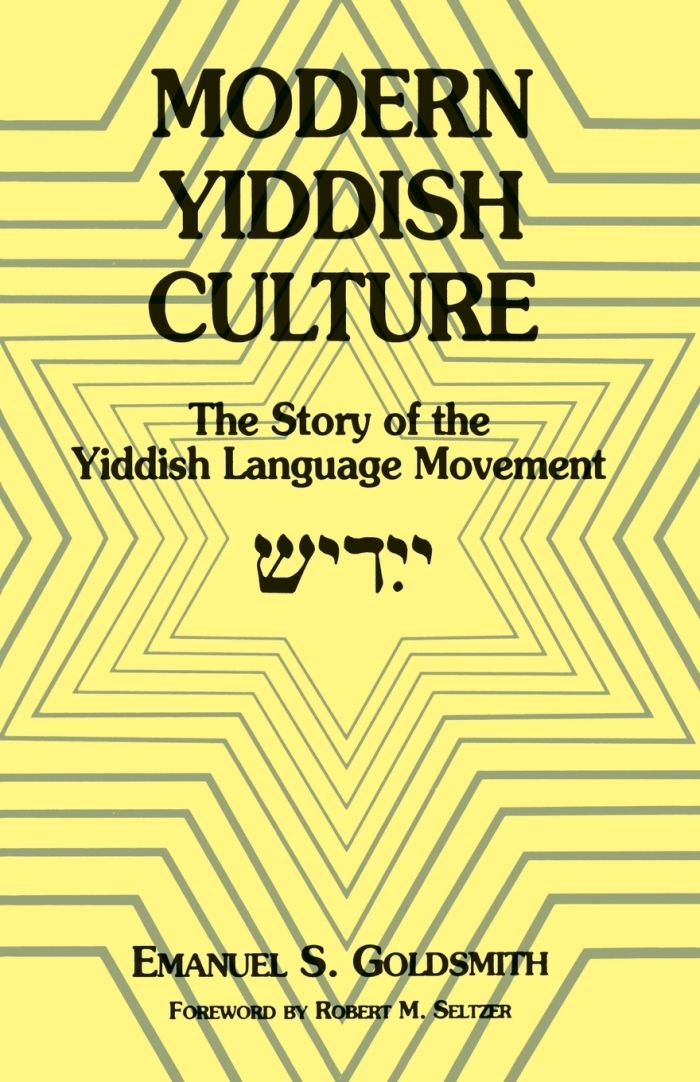Modern Yiddish Culture
The Story of the Yiddish Language Movement

The phenomenal rise of Yiddish language and culture is one of the most interesting and colorful sagas of modern Jewish history. In this significant book, Dr. Goldsmith relates the growth of Yiddish to the explosion of Jewish literature, the surge of Zionism, and the popularity of Socialism that impacted upon the Jews of Europe, America, and Israel.
Including a study of the major personalities associated with the first Yiddish Language Conference (1908,) this is the first comprehensive work to explore a movement that affected the lives of millions of Jews before the Holocaust and continues to influence Jewish life throughout the world.
Of great value. I recommend it to everyone interested in Yiddish and Jewish culture.—Isaac Bashevis Singer, Nobel Prize Laureate
Emanuel S. Goldsmith’s book was a pioneering achievement in modern Jewish scholarship. It was the first history of the Yiddish movement. In one master stroke, it enabled the bold, open-minded reader to overcome the myriad prejudices and misconceptions that continue to misguide popular notions about Yiddish and the Yiddish language movement…Now the historian of events, and (especially) the historian of ideas, are supposed to maintain a studious “distance” from their material. That Professor Goldsmith did in the first two incarnations of this splendid book. Still, the highly charged nature of the relevant controversies, and the ongoing heated debate about them, left readers wondering: And what does Professor Goldsmith say? In addition to his professorial personal at Queens College, he is, after all, an eminent Reconstructionist rabbi and a beloved writer and lecturer on Jewish thought…At long last, Professor Goldsmith has written an unabashedly subjective appraisal which appears for the first time in this new, revised third edition. In this graceful new chapter, the author keeps his scholarly wits while sharing his Jewish heart…Goldsmith feels comfortable saying: ‘Today more than ever Judaism needs Yiddishism.—David Katz, Oxford University

